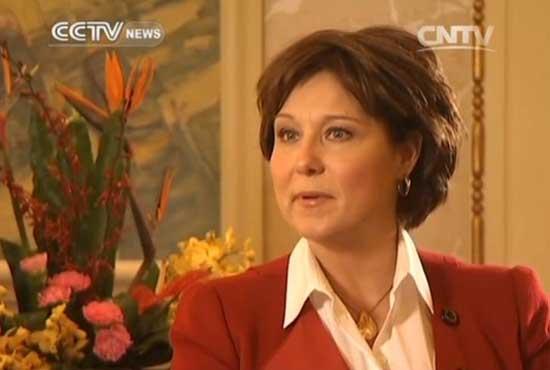On November 25th Christy Clark gave an interview to CCTV/CNTV in Chengdu, China (transcript and video here).

This is the Premier of BC selling BC’s resources overseas. Why don’t we find out if what they are telling them is true.
On helping China move to Clean Energy (Natural Gas)
“In BC we have one of the biggest reserves of natural gas in the world… we have, in huge amounts, what China needs to grow”.
It’s not easy to compare countries with just British Columbia, so lets use Canada as a whole in this exercise. From Wiki: Natural Gas by Country (Proven Reserves – 2010):
#1: Iran – 33.6 trillion cubic meters
#2: Russia – 32.9 trillion cubic meters
#6 United States – 5.9 trillion cubic meters
#15 China – 2.6 trillion cubic meters
#19 Canada – 1.6 trillion cubic meters
Top 20 isn’t bad, but “one of the biggest”? It may be a matter of interpretation, but I’d say it is not true, especially considering China itself has almost double the proven reserves than Canada as a whole, regardless where BC fits into the Canadian picture.
But wait, maybe she was just being imprecise, maybe she was talking about BC’s significant Shale Gas reserves which are indeed where these LNG plants will be getting their gas from. Shale Gas is not often counted as “proven” reserves, instead, it is often counted separately. So lets look at “Recoverable” Shale Gas from Wiki.

So again, what are we considering as ‘one of the biggest’? Yes Canada is in the top 10 at #7. BC is only going to have some portion of that Canadian number. But look at who’s #1. That’s right, it’s China. So why do they need our LNG specifically?
Ms. Clark says LNG could be the ‘most important economic change our province has ever gone through’ and that the natural gas boom will be more important than the oilsands has been. It’s hard to argue with that if it came to fruition. However, it’s also possible Chinese investors will listen to her and wonder just what she thinks they know about the veracity of her claims and the real difference BC can make to their Natural Gas needs.

The BC government, namely Christi Clark, is betting on an economic bubble. By the time the LNG comes on line, the price will have fallen. As the Chinese tap their reserves, LNG with its huge power cost for compression and cooling will be too expensive.
Of course natural gas may be cleaner than coal. Coal as rock carries its impurities into the furnaces and they must be removed after burning. But both produce carbon dioxide, the major greenhouse gas.